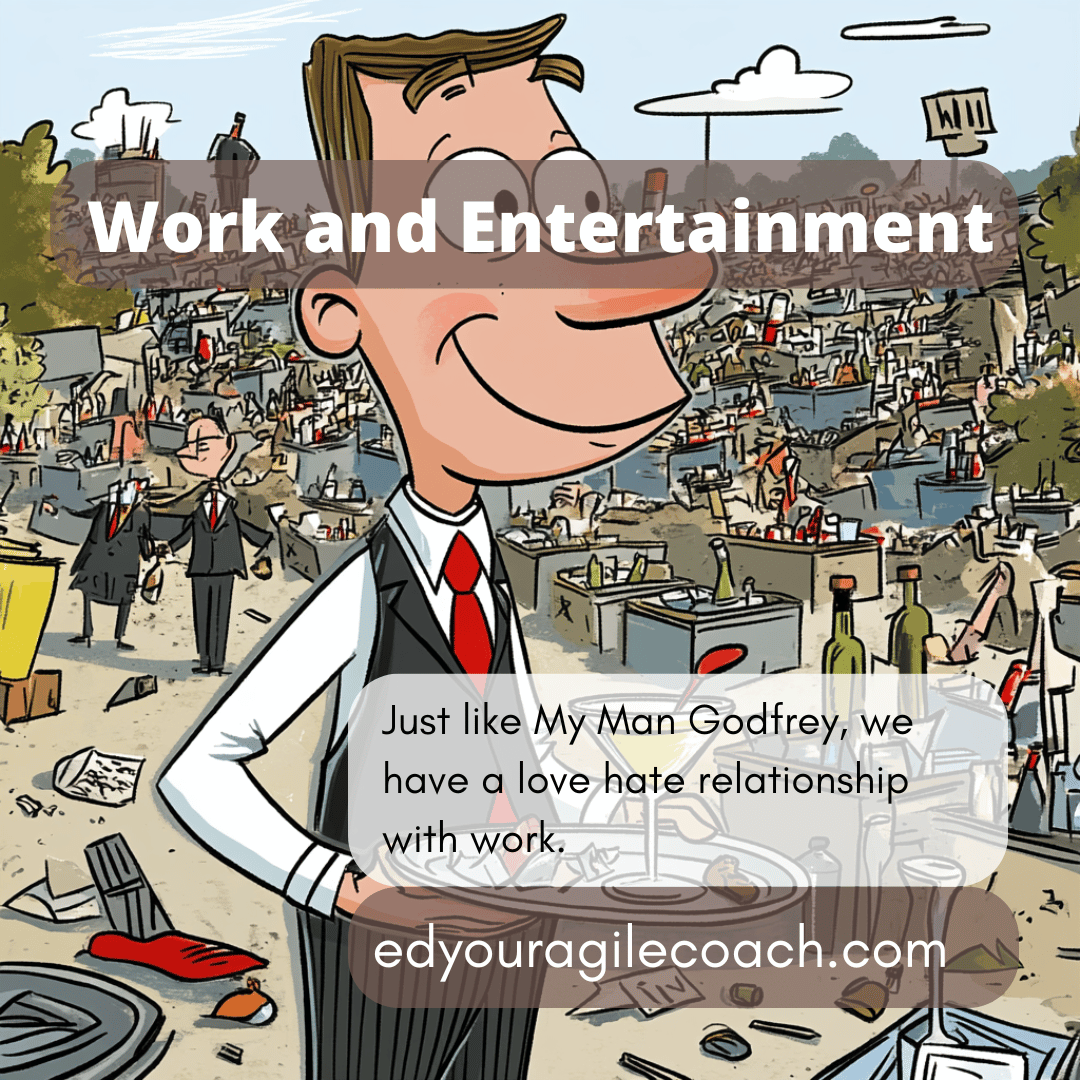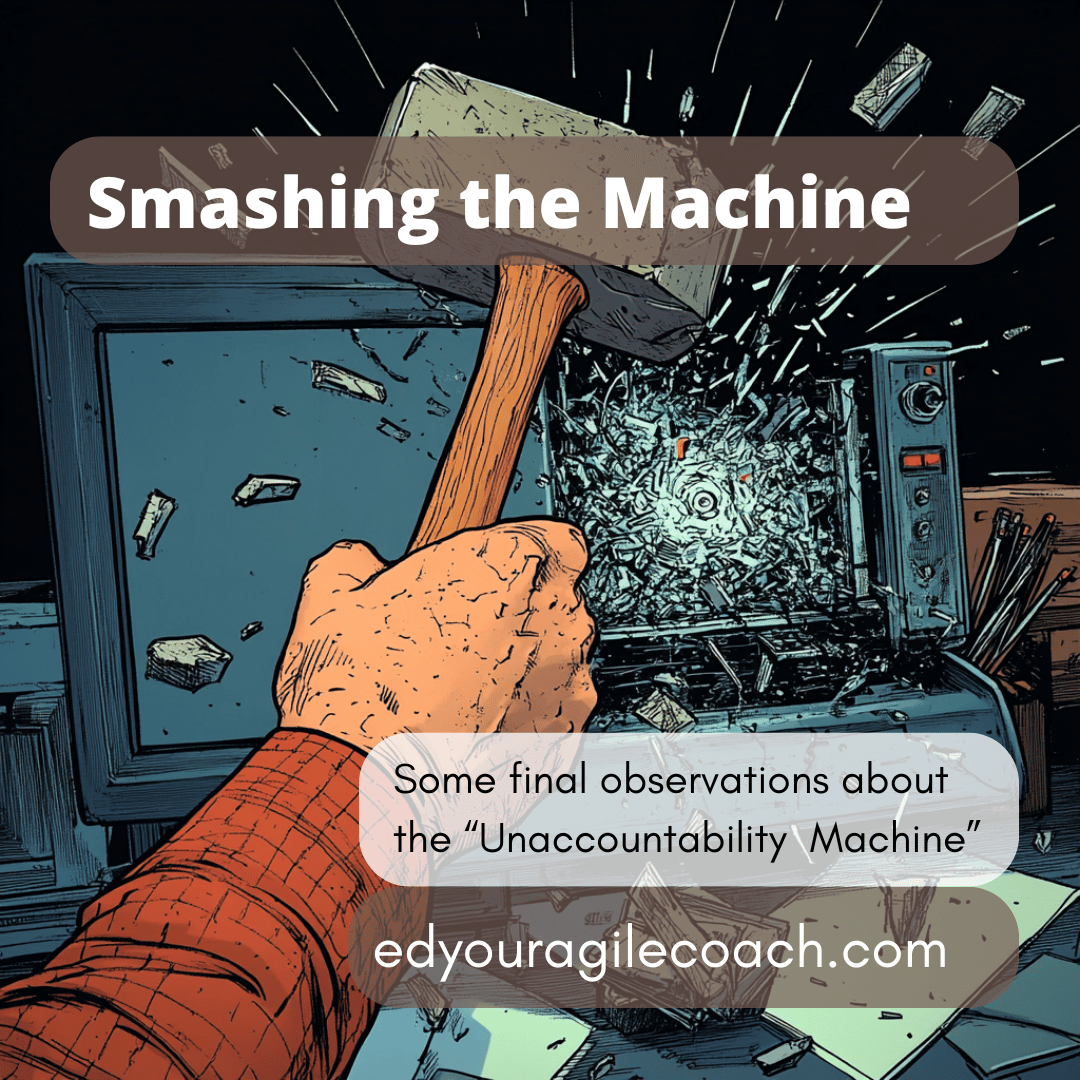Our entertaining relationship with work.

A computer company produces one of the most discussed shows on television. Apple TV asked Bill Stiller to create a show, and we got Severance. The show's central concept is that their characters undergo a surgical procedure transforming their brain. Hence, they have 'innie" lives that only experience work and "outie " lives that experience family and life outside of work. It is a provocative series that explores many themes about work, freedom, and numerous paradoxes that crop up in business. I enjoy plenty of people arguing about the episodes and the plot twists, but it occurred to me that we have been discussing work in our popular culture for as long as we have had one.
One of the things that unites all Americans, regardless of our political affiliations, is that we are preoccupied with work. We talk about work, and we argue about it all the time. It unites us because working for a wage is the only way to support ourselves and our families. Suburban homeowners associations frown on fishing with dynamite, and county sheriffs disapprove of duck hunting in cul-de-sacks. Thus, we go to work to build and sell things. The collaboration of hundreds of people fills many jobs today with the typical frustrations of human collaboration. Conflict like this caters to creative people because everyone understands and experiences these conflicts.
The slums and workhouses of Charles Dickens are so vivid today because, without contemporary labor rules, many of us can imagine ourselves helpless and living in squalor. We also have experienced co-workers or bosses like Mr. Scrooge and secretly wish the ghosts of Christmas Past, Present, and Future visit them.
The contemporary description of work begins with Dickens and the Industrial Revolution, but I think the golden age of commentary about work comes during the Great Depression. Movies had transitioned to sound as the economy around the world took a horrifying dive. Most entertainments featured distractions from suffering and misery, but a few artists wanted to comment on current events. Charley Chaplin would release "Modern Times," criticizing factory efficiency efforts and the rise of fascism with "The Little Dictator." These are excellent films, but they feel a little dated and preachy today.
For my money, a screwball comedy from that period is a perfect movie to help us understand that time. It is called "My Man Godfrey," featuring William Powell and Carole Lombard. Set in 1936, Powell is homeless and living in a squatter's camp along the New York East River. He encounters a wealthy and clueless socialite who needs his help to win a scavenger hunt, and hilarity ensues. The jokes are wry and deadpan, while the social distinctions between Godfrey and his employers become glaringly obvious comedy gold. Unlike Chaplin, who was overtly political, "My Man Godfrey" skewers America's hypocrisy and double standards during the Great Depression.
As we become more technologically advanced, the fear of being replaced by computers dates back to the 1950's and the Broadway show and film "The Desk Set." It was one of the many movies Spenser Tracy made with Katherine Hepburn. It also features a plot where workers must grapple with a computer replacing many clerical workers around the office. It is a little technicolor slice of life and reflects the insecurities of the time. The anxiety back then with mainframe computers has an eerie similarity with Artificial intelligence today.
I also remember a 1997 film entitled "Clockwatchers," which tells the story of four women who are temporary workers at a bank. The movie sticks with me because being a temporary worker or consultant is precarious. Your contract can end for any reason, and the company does not have to give a reason. Co-workers and leadership often mistreat you; you must accept it because you are 'just' a temporary worker. The film masterfully reveals the painful realities of temporary work's lack of respect, protection, and dignity, and it presents the delightful spectacle of Lisa Kudrow, Toni Collette, and Parker Posey sharing the screen. Like "My Man Godfrey" and "The Desk Set," this movie shows how work transformed over the years and how the social contract between workers and employers broke down.
I gave this film history because each movie, scattered over sixty years, tells us how work has changed and what has stubbornly stayed the same. We must depend on and trust others at work; when macroeconomic forces, like those in 'My Man Godfrey,' or technological ones, like those in 'The Desk Set,' undermine that trust, we rebel. Treating people like replaceable objects, as in "Clockwatchers," undermines our basic humanity with each other.
Agile professionals should pay attention to these signals coming from the culture. There is a reason why shows like Severance and The Office become popular: we must explain our uncomfortable relationship with work. We spend most of our time on the job site. It is necessary to support our families, but the power struggles, pressure to perform, and natural conflicts between ordinary people can make that pursuit futile and frustrating.
Here is where we come in. We need to help our colleagues and employers navigate these challenges. It is maddening and complicated work, but if done right, we will avoid the screwball work environments seen in movies and television. For once, art can avoid imitating life.
Until next time.
Things we a little different in the 1950 office.




Comments ()